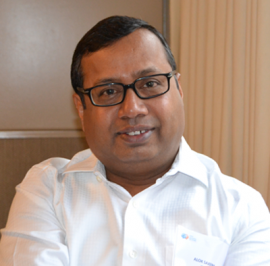
India
Year Joined: 2010 | Membership: Full Member
Reaching the informal sector.
In 2007, the state of Andhra Pradesh launched the Aarogyasri health insurance scheme, gradually extending coverage for catastrophic, inpatient care to the entire population below the poverty line (BPL) statewide. One year later at the national level, the Ministry of Labour and Employment launched RSBY to provide health insurance benefits to BPL populations.
Summary of UHC Journey
In 2007, the state of Andhra Pradesh launched the Aarogyasri health insurance scheme, gradually extending coverage for catastrophic, inpatient care to the entire below-poverty-line (BPL) population statewide. One year later at the national level, the Ministry of Labour and Employment (MoLE) launched the Rashtriya Swasthya Bima Yojana (RSBY) program to provide health insurance benefits to BPL populations. RSBY is being implemented by state governments in 23 different states, with plans to cover the entire BPL population in India.
Both programs are entirely cashless, with no required co-payments at the point-of-service. Aarogyasri requires no member contribution whatsoever, while RSBY has made the decision to charge beneficiaries a small registration fee.RSBY is financed through a mix of central and state government revenues, while Aarogyasri is financed entirely at the state level with no support of the central government.
Both programs have also made use of commercial insurers for administrative functions.In both cases, the selected insurer is paid a defined premium from the government per beneficiary, and carries the actuarial risk of program beyond that point.
The RSBY program is unique in its involvement of local NGOs in the process of building awareness, and identifying and enrolling targeted beneficiaries. RSBY also issues one SmartCard per family at the time of enrollment. SmartCards aid enrollment and claims processing, and information on all enrolled family members is stored on the card.

Alok Saxena
Ministry of Health and Family Welfare, India

Vinod Varma
India is one of the founding members of JLN. Members of the Indian delegation contributed to the following knowledge products:
- Primary Health Care (PHC) Measurement for Improvement Indicator Inventory
- Engaging the Private Sector in PHC to Achieve UHC: Advice from Implementers to Implementers
- UHC Primary Health Care Self-Assessment Tool
- UHC Primary Health Care Self-Assessment: Summary Report from Four Country Pilots
- Open Health Data Dictionary
- Software Comparison Tool
- Connecting Health Information Systems for Better Health
- Determining Common Requirements for National Health Insurance Information Systems
- Toolkit for Medical Audit Systems: Practical Advice from Implementers to Implementers
- Costing of Health Services for Provider Payment: A Practical Manual
- Costing Manual: Online Course
- Costing Manual: Tools & Templates,Financing and Payment Models for Primary Health Care: Six Lessons from JLN Country Experience
- Compendium: 12 country approaches to covering poor and informal populations to achieve UHC
- Primary Health Care Measurement for Improvement Toolkit
- Governing to Improve Quality Toolkit
- India Chhattisgarh State: Approaches to covering poor, vulnerable, and informal populations to achieve UHC
- India Andhra Pradesh: Approaches to covering poor, vulnerable, and informal populations to achieve UHC
- 24/7 Call Center and End-to-end IT solution
- JLN Population Coverage Technical Initiative Workshop Summary
- International Lessons for RAMED
In 2018, representatives from Ghana participated in the Leveraging Resources for Efficiency, Fiscal Policy for Public Health, PHC Financing and Payment, and Domestic Resource Mobilization collaboratives.
RSBY and Aarogyasri hosted a delegation from Ghana in 2011 to exchange knowledge on India’s experience with ICT, claims processing, biometric membership ID’s, and subscriber authentication at the provider site.
Ghana’s National Health Insurance Authority received follow-up support from Arogyasri to establish a call center and RSBY on biometric ID’s. Ghana established their call center in early 2012 and began rolling out biometric ID cards in early 2014.
